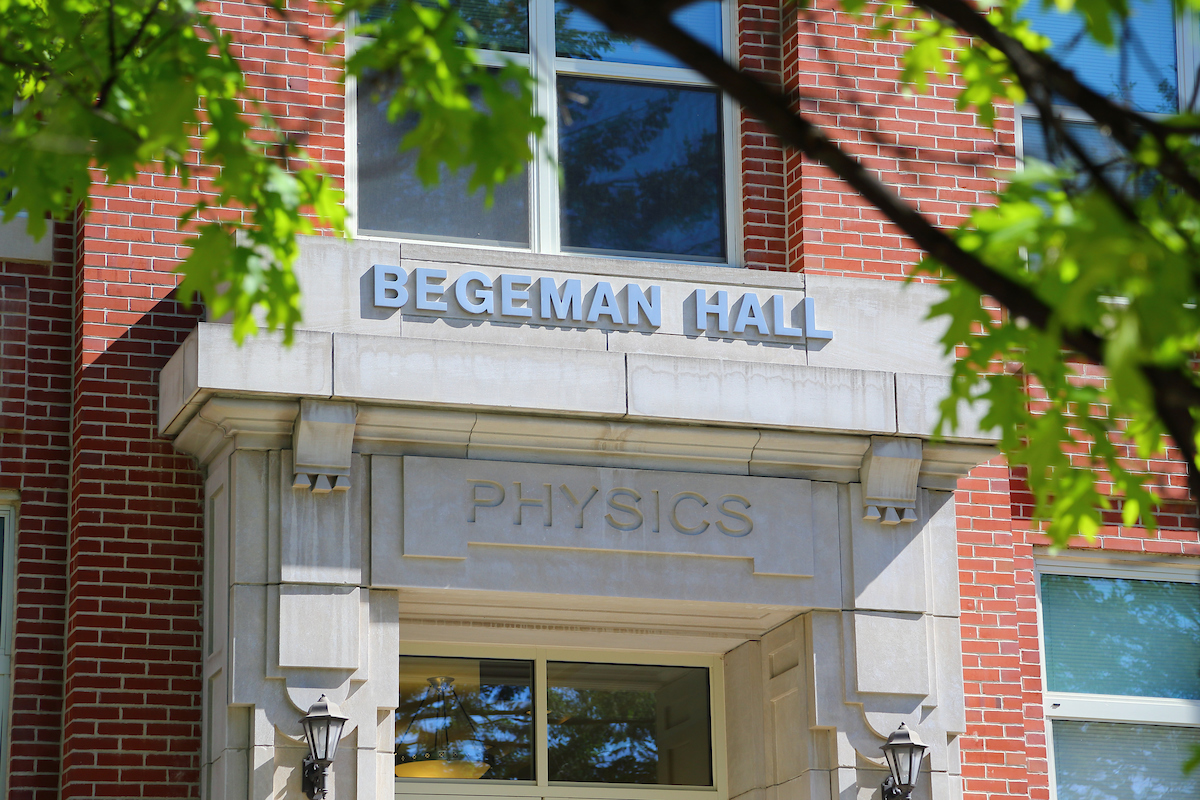UNI physics faculty awarded millions to research of biomanufacturing, quantum computers and materials engineering
University of Northern Iowa physics faculty members have secured significant grants from the National Science Foundation (NSF) and Department of Energy (DOE), underscoring UNI's commitment to cutting-edge research and academic excellence. All four grants also support student training to enter the workforce.
UNI will play a critical role in a five-year, $20 million NSF grant aimed at bolstering research capacity and infrastructure for Iowa’s bioscience and advanced manufacturing sectors. The overall research goal uses Iowa’s agricultural strengths as a basis to develop new products and technologies. This transformative project, named Chemurgy 2.0, is a collaborative effort involving UNI, Iowa State University, the University of Iowa, Central College and Dordt University aimed at meeting human needs through things that grow. UNI’s Tim Kidd serves as principal investigator (PI), spearheading the research on fibers for flexible and rigid materials. Physics faculty member Ali Tabei is a co-PI on this grant.
A second NSF grant of $550,000 over three years has been awarded to UNI's Andrew Stollenwerk, Kidd and Rui He of Texas Tech University, to explore how adding small amounts of carbon can produce changes in the electrical and optical properties of materials. This research holds immense promise for applications in cutting-edge technologies such as LEDs, lasers, optical sensors and quantum computers.
"These funds are not only helping to make Iowa more technologically competitive, but through extensive undergraduate research opportunities, students will learn practical skills that cannot be replicated in the classroom," said Stollenwerk.
A third NSF grant totaling $800,000 over three years, focuses on the study of materials vital for quantum information storage and processing. UNI is one of only 20 universities in the country to be awarded this funding. Kidd also serves as the principal investigator for this grant, which is in collaboration with Iowa State University, with ISU’s Lin Zhou serving as a co-PI. This research also involves UNI physics faculty members Pavel Lukashev, Tabei and Paul Shand.

In addition to NSF funding, UNI has received a $500,000 grant from the DOE led by Kidd and co-principal investigators Stollenwerk, Lukashev and Shand. This grant aims to engineer two-dimensional materials for quantum computing and future forms of electronics. UNI is the only undergraduate institution that has been funded by the DOE in this manner.
"These opportunities will be available to students in UNI's physics programs or the new materials science & engineering program set to launch this fall. This new engineering major takes advantage of UNI’s long standing expertise in materials research and technology and is strongly supported by materials-related industries across the state," said Shand. "The double boost of extensive research support and a modern materials engineering program ensures that Iowa is not ceding ground to other states in preparing students for developing, designing and building the technologies of the future.”
"These awards are a sign of the consistent high quality research from the UNI physics faculty over the last decade that resulted in numerous publications in premier scientific journals,” said Lukashev.
